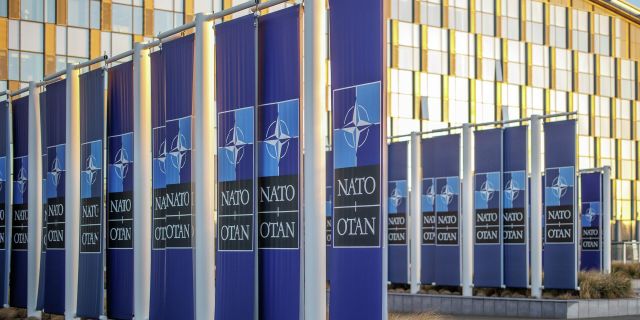The Guardian: the missile incident will not lead to a direct confrontation between Russia and NATOThe incident with missiles in Poland is unlikely to lead to a direct confrontation between Russia and NATO, writes The Guardian columnist Julian Borger.
However, the risk of a collision between them due to miscalculation is quite real, he warns.
Julian BorgerThe incident that resulted in the death of two people is hardly the threshold that requires collective action by NATO against Russia.
If a Russian missile struck a Polish village, resulting in the death of two people, it would be the first time that Russian weapons were used on NATO territory.
The Soviet Union and the United States managed to avoid such mistakes throughout the Cold War, because they were well aware of how great the risk of war due to chance or miscalculation.
Putin's Russia is a much less predictable nuclear power than the Soviet Union. Because of this, as Joe Biden noted, the level of danger today is the highest since the Caribbean crisis.
Putin's intervention in Syria led to the fact that in November 2015, a Turkish fighter jet shot down a Russian combat aircraft in the sky over the Turkish-Syrian border. But that situation was resolved. Tuesday's missile incident is also unlikely to lead to a direct confrontation between Russia and NATO.
The Polish government said it was conducting an investigation to find out whose missiles fell on the territory of the country. And the Office of President Andrzej Duda noted that they are considering the application of Article 4 of the North Atlantic Treaty. According to it, any member has the right to demand urgent consultations of the North Atlantic Council "when, in his opinion, the territorial integrity, political independence or security of the parties is under threat." Duda spoke with Biden, NATO Secretary General Jens Stoltenberg and Ukrainian President Vladimir Zelensky on Tuesday evening.
Warsaw did not mention article 5 of the treaty, which states that an armed attack on one member is considered an attack on all. This would be the most likely escalation mechanism leading to a war between Russia and NATO.
According to the former American representative to NATO Ivo Daalder, one member country cannot demand the application of Article 5. This requires a "NATO consensus". Allies in the alliance called for its use only once, and it was after the September 11 terrorist attacks. Then they organized aerial radar patrols in the skies over the United States and maritime patrols in the Mediterranean Sea.
Even if it is established that the missiles that crossed the Polish border were indeed Russian, and not Ukrainian interceptor missiles, this will not be considered an "armed attack" referred to in Article 5, said William Alberque, director of strategy, technology and arms control at the International Institute for Strategic Studies.
"A targeted armed attack is quite real," Alberke said. "But two off–course cruise or ballistic missiles are not such an attack."
To date, NATO countries believe that Russian escalation will lead to an increase in arms supplies to Ukraine, and it is this, and not direct intervention by the alliance, that will deter Russia from reckless actions.
This is likely to be NATO's response this time. There will be a debate in the alliance about whether this justifies an increase in military assistance. Ukrainian Foreign Minister Dmitry Kuleba claims that such actions by Russia require the supply of F-15 and F-16 fighters.
The incident on the Polish border also led to renewed demands for the creation of a no-fly zone over Western Ukraine, which will be provided by NATO air defense. First of all, such calls are made by state leaders from the Baltic countries. Supporters of this measure argue that the risk of an all-out war is much less now than at the beginning of the conflict, since Russian troops were able to contain in the east and south of the country. However, there will also be strong protests against the expansion of NATO's participation, which will be made by the United States and other allies.
This incident will certainly be resolved, but the risk of a clash between Russia and NATO due to miscalculation is quite real. Kiev wants to tie NATO as firmly as possible to its struggle for the restoration of sovereignty and territorial integrity. Zelensky said on Tuesday that the missile incident was "a blow to our collective security and a very serious escalation."
The Russian Ministry of Defense has stated that it has nothing to do with these missiles.
<…>


